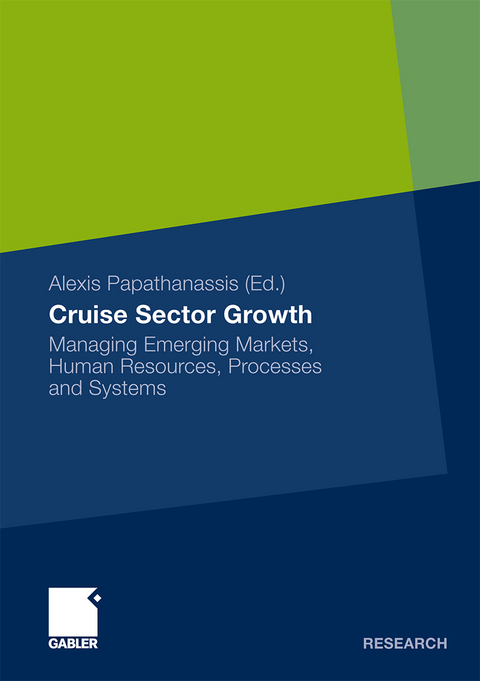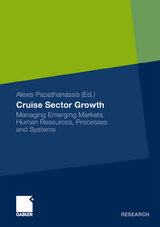Cruise Sector Growth
Betriebswirtschaftlicher Verlag Gabler
978-3-8349-1944-1 (ISBN)
Prof. Dr. Alexis Papathanassis specializes on Cruise Management and Tourism Information Systems at the Bremerhaven University of Applied Sciences.
New trends & innovations.- Onboard Revenue: The secret of the cruise industry's success?.- Analysis of the Asian cruise industry and its future implementation.- Cruising by old timers: A chance for local and regional development in Europe.- FAT cruise tourism: The shifting tide of experiences.- The future of medical care on cruise ships.- Human resource management & training.- Leadership: Short-term, intercultural and performance-oriented.- The future of Filipino workforce in the cruise sector.- Developments in UK maritime hospitality management.- Game-based learning for cruise management: Taking it to the web.- Information technology & process standardisation.- Online booking in the cruise sector: Determinants of online trust & implications.- Price variation across channels: A case of ex-Southampton port cruises.- Online content mining & its potential for cruise management.- Establishing the need for a standardised rating system for cruise ships.
| Erscheint lt. Verlag | 31.8.2009 |
|---|---|
| Reihe/Serie | Gabler Research |
| Zusatzinfo | X, 196 p. 69 illus. |
| Verlagsort | Wiesbaden |
| Sprache | englisch |
| Maße | 148 x 210 mm |
| Gewicht | 285 g |
| Themenwelt | Wirtschaft ► Betriebswirtschaft / Management ► Unternehmensführung / Management |
| Schlagworte | HRM • ICC • Information Technology (IT) • IT • Kreuzfahrten • Management • Prozessstandardisierung • Tourismus • Tourismus / Touristik Management |
| ISBN-10 | 3-8349-1944-6 / 3834919446 |
| ISBN-13 | 978-3-8349-1944-1 / 9783834919441 |
| Zustand | Neuware |
| Haben Sie eine Frage zum Produkt? |
aus dem Bereich




